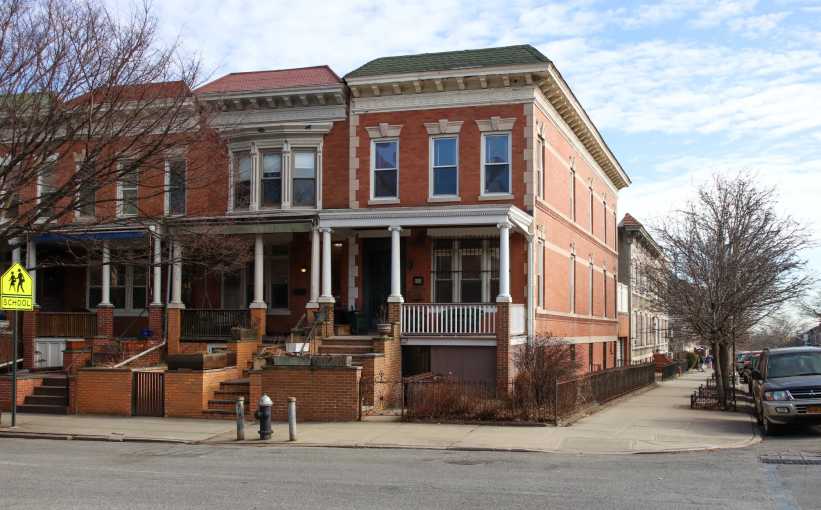In a watershed decision, the City Council and Mayor Michael Bloomberg have agreed to allow the New York City Department of Environmental Protection (DEP) to go after the biggest water bill deadbeats, and spare ratepayers a mid-year, 18 percent increase in their water and sewer bills.
Until now, property owners who paid their real estate taxes could ignore their water bills with relative impunity. The DEP could get a lien against a property owner who refused to pay, but could not act to collect the money by selling off those liens.
The DEP authorization for independent lien sales puts New York City on par with other American cities that use this enforcement method, as well as others such as service shut-offs, to achieve revenue collection rates between 95 and 99 percent, much higher than the current city collection rate of approximately 85 percent.
At a conference with City Council Speaker Christine Quinn, Bloomberg said, “Now we can effectively enforce collections and stop passing the burden caused by a small percentage of irresponsible rate payers onto the more than 85 percent of New Yorkers who pay on time.”
Quinn said, “This agreement strikes the right balance between the need for a fair collection policy with the need to protect the most vulnerable New Yorkers from losing their homes.”
In conjunction with the legislation, the Mayor and the Speaker agreed to implement a one-time Payment Incentive Program (PIP), relating to water and sewer charges. Those who pay in full may escape the interest which can inflate the bills.
Bloomberg and Quinn also announced the creation of a formal Safety Net Referral Program for water and sewer customers.
In addition, account holders with a remaining substantial balance after the PIP adjustment will be eligible to enter into a payment agreement, extending payment over five years.
Councilmember James F. Gennaro, who chairs the committee which oversees the DEP, is both gratified and resolute.
“I am gratified that (we) have averted a massive mid-year water rate increase, by taking to task those high-rise residential and commercial buildings that have exploited the system and are persistent non-payers,” he said. “I will personally and vigorously monitor DEP’s exercise of this authority to ensure that it is wielded fairly and effectively.”
The agreement on water liens reflects more than 18 months of cooperative effort between DEP and the council, which had been “holding DEP’s feet to the fire to get them to clean up their act” with regard to billing and meter repairs.
“In the past, there was no incentive for DEP to read the meter or make sure they were working,” Gennaro said. “Now they can only back-bill for two years, so they have to be on the ball.”
“(We have) worked intensively over the last year to improve customer service and collections,” said DEP Commissioner Emily Lloyd. “Over the next three years, we will be introducing additional improvements, such as Automated Meter Reading, which will help us to serve the citizens of New York City even better.”
“It is also incumbent upon the DEP to exercise their authority fairly and effectively, because we’re going to keep them under a microscope,” Gennaro warned. If the council doesn’t like how they exercise their new power, we can take it away.”
Going forward, DEP will be reporting to the council on key performance indicators quarterly and on revenue collection monthly.
Part of the new agreement is the creation of an ombudsman process for those who feel they have been unfairly treated.
“The thing is that we’ve exempted all single-family homeowners, and many two-, three- and four-family homeowners who are elderly, disabled or economically distressed -actually, that’s most of the buildings in New York City,” Gennaro stressed. “They’re the ones who were vulnerable to bureaucratic harassment by the DEP.” He said.
Councilmember David Weprin, who chairs the Finance Committee and often appeared side-by-side with Gennaro on the water issue, expressed satisfaction.
“We have managed to avoid an increase and protect single-family home owners, seniors, and low-income families,” he said. “It is my hope that those (with) past due water bills will find a way to resolve their outstanding obligations.”
“Egregious non-payers who have large buildings know that the city won’t cut off the water and punish the tenant for the sins of the landlord,” Gennaro observed. “They’re also the ones with lawyers and accountants - the resources to resolve a billing question.”
“If they don’t, they can’t just stall until they sell before paying the water bill - they could have their property taken away,” he concluded.
But shut-offs will be used to collect, even from homeowners.
“The best part of the whole agreement is that this now clears the table for the mayor to do the right thing and reduce the excess rent paid by the Water Board, which the city spends on non-water and sewer expenses,” Gennaro said, hinting at more negotiations ahead.
“I’ll be talking about it every day from now until May, when next year’s water rates will be on the table,” Gennaro promised. “It’s an abomination.”
































